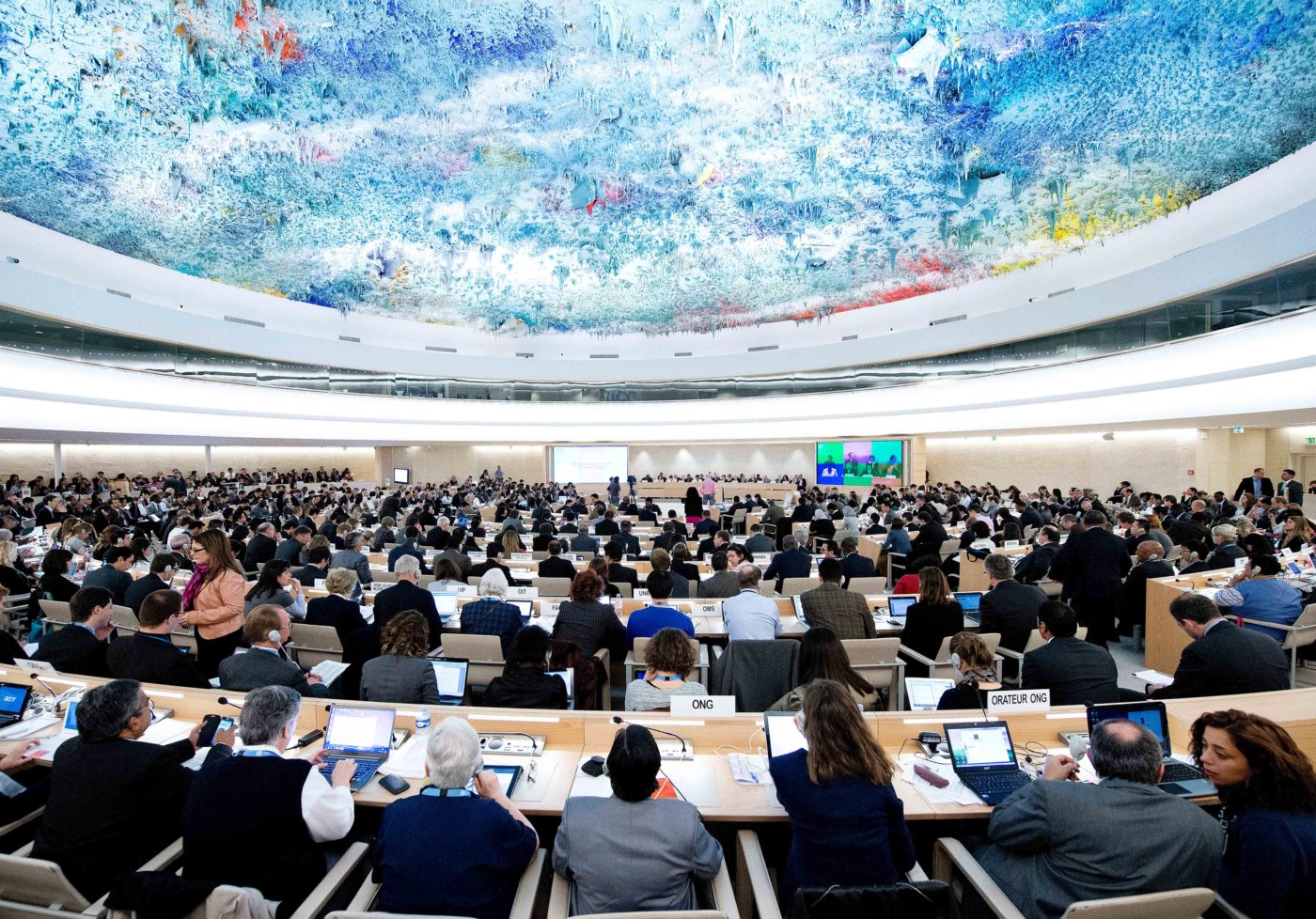As the United Nations Human Rights Council concludes its 53rd session in Geneva, the ICJ welcomes the Council’s continued commitment to addressing some of the critical challenges of the day, including violence against women and girls, the rights of migrants, the independence of the judiciary, and the impact of new technologies and climate change on human rights. At the same time, some States at the Council have persisted in calling into question and undermining hard-fought gains in such areas as the protection of the rights of LGBTI persons, or sexual and reproductive health and rights.
The ICJ welcomes the adoption of a number of essential resolutions addressing both thematic human rights issues and country situations, and further welcomes that many of these resolutions ensure that the Council and the wider international community will benefit from the contribution of dedicated independent experts to meaningfully address some of these issues and situations. The ICJ particularly hails the renewal by consensus of the mandates of the UN Special Rapporteurs on the independence of judges and lawyers; on extrajudicial, summary, or arbitrary executions; and on the rights of persons with disabilities. The ICJ also welcomes the initiative to ensure the full implementation of the UN database of businesses facilitating Israeli settlements in the Occupied Palestinian Territory.
The ICJ further welcomes the extension of the mandate of the UN Special Rapporteur on the situation of human rights in Belarus and the Council’s acknowledgement of the appalling attacks on independent lawyers in the country “for providing services to the political opposition, human rights defenders and/or others arrested for politically motivated reasons.” The resolution also denounced the continued widespread and systematic violations of international human rights law that may constitute crimes against humanity. Despite its adoption, we deplore that a vote was called for this resolution and that a significant number of States declined to support it. As per its joint statement with the International Bar Association, the ICJ insists on the need to keep and strengthen the attention of the HRC on the situation in Belarus.
Yet the performance of the Council was not all salutary. The ICJ condemns the attempts to delete important references to the protection of the rights of LGBTI persons, and more generally the continued unacceptable backlash against recognizing the gendered dimension in many country situations and thematic debates happening at the Council. The ICJ has worked to resist these attempts to remove entire classes of people from the ambit of international human rights protection. For example, a late oral amendment introduced by Pakistan on behalf of the Organisation of Islamic Cooperation (OIC) to the resolution on technical cooperation in Colombia, aimed — unsuccessfully and against the will of Colombia itself — to delete a reference in the text to the disproportionate impact of violence on persons on the basis of their sexual orientation and gender identity. The ICJ salutes the position of the majority of States, who stood firm in opposition to this hostile amendment, while deeply regretting the tight rejection by only two votes and the fact that 19 States ended up abstaining from the Resolution. Additionally, although adopted by a clear majority, the ICJ regrets that the resolution on technical assistance in and requested by Ukraine could not be adopted by consensus.
A similar battle occurred in the context of the resolution on child, early and forced marriage: ending and preventing forced marriage. Although the initiative was sponsored by a cross-regional group of States, reflecting national and regional contexts with religious and cultural diversity, the Russian Federation, Iraq, Saudi Arabia, Nigeria and Egypt, attempted, without success, to amend the resolution to undermine the rights of women and girls and long-term commitments and advances for protection of these rights. In the resolution on efforts to eliminate violence against women and girls in criminal justice detention, the Russian Federation introduced an amendment to strike language related to gender, and Egypt introduced an amendment to strike references to sexual and reproductive health and rights and comprehensive sexuality education.
During this session, the ICJ drew the attention of the Council and its Member States to increasing attacks on the independence of judges and lawyers and on human rights defenders in all regions across the world. We also raised patterns of the shrinking of access to civic space, marked by restrictions on the exercise of freedoms of expression and of assembly. The ICJ underlined the ongoing reluctance to ensure that business enterprises fulfil their responsibility to respect human rights and that States comply with their obligation to regulate and hold companies accountable. The ICJ opposed retrogressive developments in guaranteeing the rights of migrants and protecting against online gender-based violence. The ICJ also participated in discussions on how to address the adverse impact of arms transfers, climate change, and new technologies on human rights.
With regard to country situations, the ICJ held a side-event addressing the gross human rights violations against women and girls in Afghanistan, amounting to the crime of gender persecution. The ICJ also issued statements on the serious human rights violations and the undermining of the rule of law and the fair and independent administration of justice in Tunisia, Libya, Egypt, Venezuela, Guatemala, Belarus, Ukraine, Sri Lanka and Myanmar.




